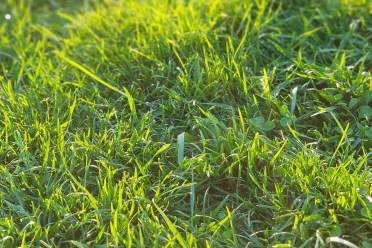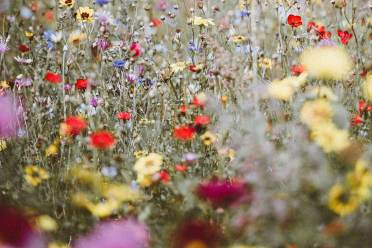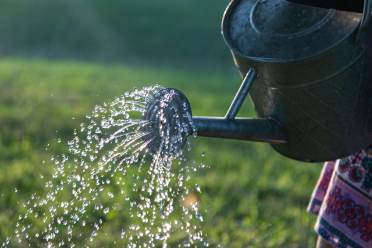Water saving tips
Discover some top tips to save water in and outside the home in our water saving tips blog.
Many of us get a lot of enjoyment from our gardens, especially in the summer. They’re a place to relax and rejuvenate, and for keen gardeners, a place to learn a new skill. You may even grow your own fruit and vegetables in your outdoor space – there’s nothing better than eating food you’ve grown yourself!
Environmental concerns might not be at the forefront of your mind when you think about your garden. But most of us are forcing more refined versions of nature to grow, rather than only planting native species in wildflower meadows. Doing this has knock-on consequences for how we keep our plants alive – maybe we need to use more water, regularly cut the lawn, or keep them warm in the winter.
Creating an eco-friendly home and garden can be a great solution. Whilst it will take a bit more thought and planning, bearing the environment in mind can help you work in harmony with nature in your garden – and there are plenty of benefits to that. Here, we take a look at the top three reasons to go green.

Letting your lawn grow out a little longer is beneficial for not only encouraging wildlife, but also for cutting down emissions from your mower. Petrol lawnmowers are actively bad for the environment, as they emit carbon dioxide, a greenhouse gas, as well as other pollutants.
Electric mowers are better, producing around 14.4kg of CO2e per year, in comparison to petrol’s whopping 88kg. But unless you’re running your home off self-produced renewable energy or a renewable tariff, you’re still using electricity that is generated from fossil fuels.
utting your lawn less frequently will help reduce your emissions – make sure that the blades are sharp so that the mower is as efficient as possible.

Wildflower beds and native plants can help restore the balance of the ecosystem in your garden. Plant species from around the world may look pretty, but if they’re not from your local environment, they may not support wildlife as well as native species will.
Wildflowers have a longer flowering time than other plants, and they encourage pollinators like bees to visit your garden. They also provide insects with food, and places to live and breed. You might not think that these small species make a difference, but they are key to ensuring a healthy garden.

We also use plenty of water in our gardens, keeping everything happy and looking luscious. However, water is a precious resource, and we often overwater, leaving sprinklers and hoses on the soil for longer than necessary. Planting drought-resistant species means that you can cut down on the water that you’re using. Again, native plants will be key here, as they have already adapted to the climate.
Not only will reducing water cut down your carbon footprint, but it will also reduce your water bills too. Collect rainwater, and use grey water in order to keep everything watered in an eco-friendly way.